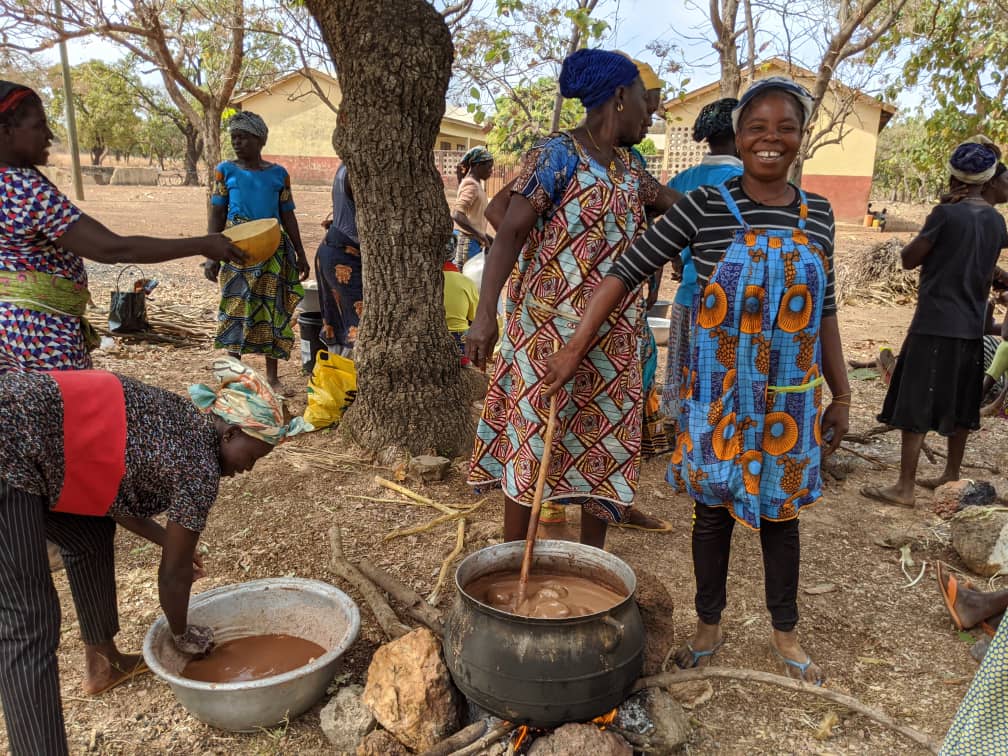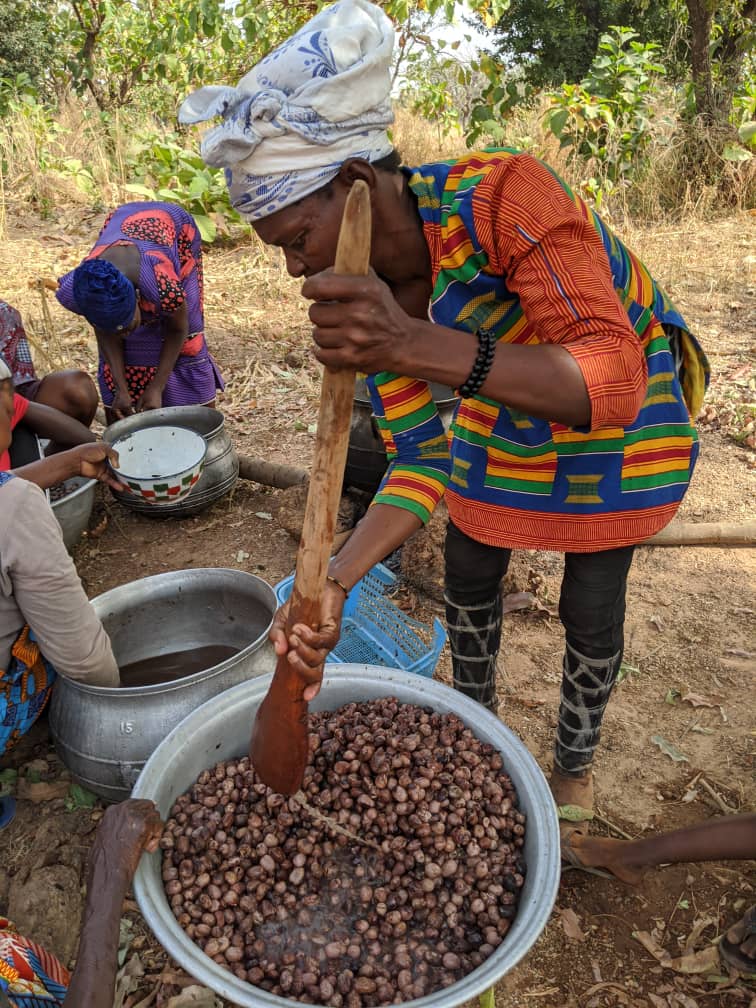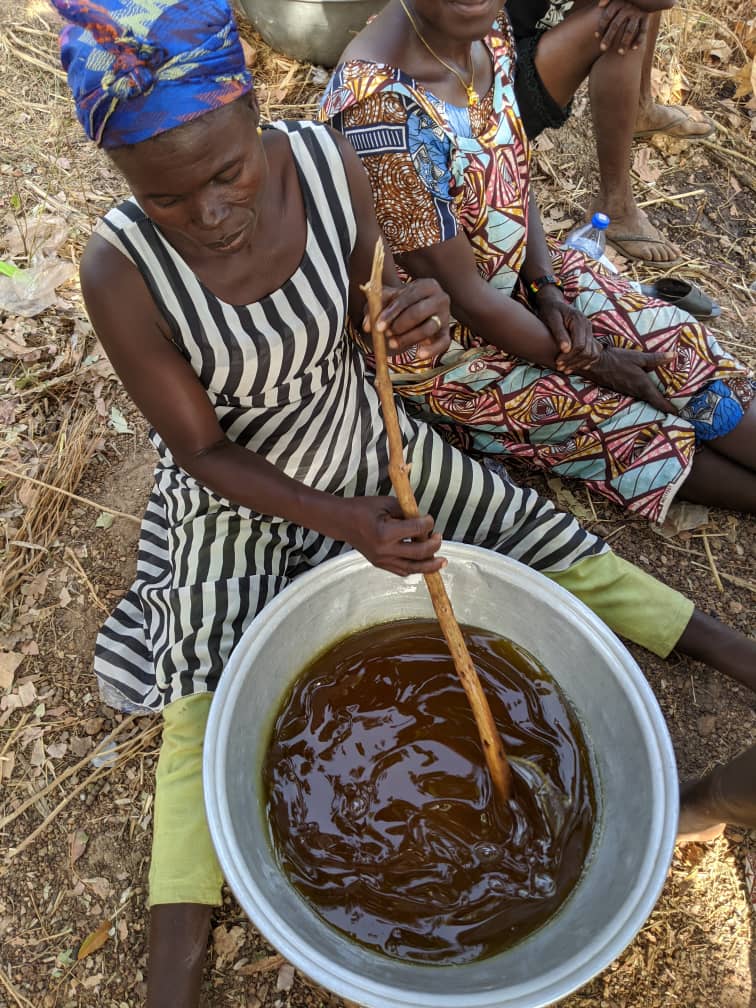Action Through Enterprise (ATE) is on a fight to eradicate poverty of all forms in Lawra, using reliable and sustainable strategies that are within the reach of our beneficiaries.
The SNAP mothers small-scale business training programme is a poverty alleviation initiative that aims at supporting our mothers of disabled children with local business skills to enable them have sustainable household income ventures that can help them fight themselves out of poverty, using locally available resources of economic value. The training will be focused in value addition, best practices, marketing, and making sustainable profits.
Planning and business type selection process
Our team has been looking at viable small-scale business options that are capable of generating a decent and sustainable income stream for our families of disabled children. To gather more reliable information, we consulted the Lawra Municipal office of the National Board of Small-scale Industries (NBSSI) to assist us with information regarding viable businesses and trainers within the Municipality and the region.
The NBSSI listed Shea butter processing, groundnut paste processing, dawadawa processing as the top three in the Municipality and region. The shea butter processing was selected as the product has the highest demand due to its potential for export. NBSSI also helped with the selection of a trainer (registered with NBSSI) and budgeting.
Shea Butter
Shea butter is popular in Lawra and is used for cooking, medicinal, and traditional purposes. But the commodity has since gained global economic value especially for cosmetics and confectionery purposes and is sought after by big corporations. Majority of the women in Lawra (including most of our SNAP mothers) produce shea butter for household uses and are unaware of the product’s economic value. They lack the skills, resources, and finances to add value to their shea butter to attract better prices and income.
Therefore, it is our aim that this training will enable them to process clean, hygienic shea butter and to also be able to add value to the shea butter by making body moisturisers and bar soaps from it.
The budget includes training of 88 women in 2 SNAP zones – Dowine and Lawra, three days per zone. The training included:
- Spotting and identifying good quality shea nuts
- Drying and sorting the nuts
- Grinding and roasting the nuts
- Milling the nuts into paste
- Beating the paste to spot oil
- Separation of oil from paste
- Cooling of oil and solidifying into butter
- Adding essential oils and fragrance to butter
- Mixing to make body moisturisers.
All the participating women spend at least 6 hours a day in all the three days.
On the first day, all women and the trainer convened at the Inclusion Centre to sort the shea nuts, sun dry and grind the nuts.
The second day was more practical. This was the day the nuts were roasted, milled into paste and beat to get the oil. The paste was beaten by hand and in turns as they easily get exhausted. After several hours of cooking the paste, the oil was later extracted and separated from the particles and impurities. The hot oil was allowed to cool and solidify into butter overnight.
On the third day, the butter was heated to melt. Coconut oil and fragrances were mixed with the butter. The mixing and formulation process to time to get the desire texture and scent.
The Trainer
Anita Sutha was recommended to us by the NBSSI at one of the best trainers for shea butter processing in the region. Anita is a professional basic school teacher but took interest in small scale entrepreneurship as a secondary income source. She started as a cloth weaver and later added food processing after some skills training. She now has a food processing facility in her community (Zambo) where she processes and packages local food items for sale and for export. Through her entrepreneurial successes, she is hired by many NGOs as a trainer and also travels abroad for agro food conferences and trainings. Anita is planning to soon quit her teaching job to focus on her business.
Conclusion
Throughout the training, all our SNAP mothers were actively participating in all the stages of the process and asking all the relevant questions. It is our plan to encourage individual SNAP women or group who want to venture into quality shea butter processing as a business get assistance from our BizATE programme and become Small Business Owners (SBOs).
Written by Kaamil Issahaku, SNAP Lead





